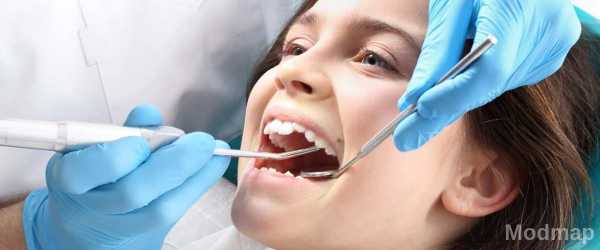
Teeth play an important role in our lives, from supporting our daily digestion to shaping our smiles. But few people realize that dental health is directly related to the overall health of the body, and requires constant and careful care. In this article, we have systematized the most important aspects that will help you keep your teeth healthy throughout your life.
Basic principles of oral health
The Importance of Regular Hygiene
The foundation of your oral health is regular hygiene. This includes brushing your teeth and gums daily with toothpaste and floss. This simple routine can prevent problems such as tooth decay and periodontal disease from developing.
It is important to take the time to thoroughly brush all surfaces of your teeth. Many dentists recommend brushing your teeth for at least two minutes, twice a day.
The Role of Nutrition in Dental Health
Healthy eating is closely linked to oral health. Foods that contain a lot of sugar or acid can contribute to the development of dental caries. These include sugary drinks, fruit juices, and sweets.
On the other hand, foods rich in calcium (such as dairy products) and fruits and vegetables, which contain a lot of water and help stimulate saliva flow, can help keep teeth healthy.
The impact of age-related changes on the condition of teeth
As we age, our oral health can suffer due to physiological changes in the body. For example, aging can cause the enamel to naturally thin, which increases the risk of tooth decay. Therefore, special attention should be paid to dental care in old age.
Additionally, habits such as smoking and drinking alcohol can also damage your teeth and gums and worsen your overall oral health over time.
Ways to Maintain Healthy Teeth
Proper Use of Toothbrush and Floss
Brushing and flossing are the foundation of a dental care routine. Brushing removes plaque and food debris from the surface of your teeth, while flossing effectively cleans between your teeth where your brush can't reach.
The choice of a brush should be based on individual preferences and the dentist's recommendations. It is important that the bristles are soft or medium hard and do not damage the enamel and gums.
Floss should also be used daily, moving between the teeth in an up and down motion to completely remove debris.
Use= mouthwashes
Mouthwashes can be an additional tool for maintaining oral health. They help improve breath freshness by killing bacteria that can cause gum disease and tooth decay.
Mouthwash is a supplement to brushing your teeth, not a replacement for brushing and flossing. It should be used after brushing your teeth.
Ensuring regular intake of vitamins and minerals
A proper diet rich in vitamins and minerals helps maintain oral health. Calcium is especially important.
- Citrus fruits and berries contain vitamin C, which helps maintain healthy gums.
- Fish, eggs and meat are rich in phosphorus, which helps maintain healthy enamel.
- Dairy products, nuts and seafood contain calcium, which helps keep teeth healthy.
Debunking Dental Health Myths
Myths and Facts About Wisdom Teeth Removal
Wisdom teeth often have to contend with many myths. One of them is the idea that everyone should have their wisdom teeth removed. In reality, whether or not they need to be removed depends on many factors, including the position of the tooth and whether it can be cleaned normally. Sometimes they are in a comfortable position and do not cause any problems.
Another common myth is related to the age for removal. Many people think that the earlier, the better. But this rule does not always work. Without special indications, they can be left alone.
Teeth whitening: harm or benefit?
Whitening is another area surrounded by myths. Many people are afraid of the whitening procedure, believing that it can damage their teeth. In fact, if the procedure is performed by a professional and using proven products, it can be quite safe. However, it is always worth remembering that teeth whitening is a cosmetic procedure and is not related to dental health.
However, there are some risks. For example, poor quality whitening products or improper use can cause enamel damage or gum irritation. For safety and effectiveness, professional whitening under the supervision of a dentist is recommended.
Professional Intervention in Oral Health
Regular dental checkups – why are they necessary?
Regular dental checkups are an important step in maintaining dental health. They allow your dentist to detect potential problems, such as incipient tooth decay or gum disease, at an early stage when they are easier and quicker to treat.
During a check-up, your dentist will usually perform a professional cleaning of your teeth, remove plaque and tartar, and check the condition of your gums and teeth. It is recommended to visit your dentist at least once a year, but ideally every six months.
Professional teeth cleaning – what is it and why do it?
Professional teeth cleaning is a procedure performed by a dentist to remove plaque and tartar that cannot be completely removed with a toothbrush and dental floss. This procedure helps prevent the development of caries, gum inflammation, and other diseases.
In practice, this procedure is recommended to be performed once every six months. It does not take much time and usually does not cause pain. In the Apex dental clinic, for example, the use of modern equipment allows cleaning to be carried out quickly, comfortably and painlessly for the patient.
Conclusion
Dental health depends on many factors: from daily hygiene and nutrition to preventive dental checkups. If you have any doubts or questions about your oral health, do not hesitate to contact your doctor.
Remember, your oral health is worth taking care of every day. Proper care of your teeth and gums can greatly improve your life and keep your smile healthy and beautiful throughout your life.
Frequently asked questions:
1. How often should you change your toothbrush?
Dentists recommend replacing your toothbrush every three months or sooner if the bristles become worn.
2. Is it normal for gums to bleed when brushing teeth?
Bleeding gums when brushing your teeth may be a sign of inflammation and require a visit to the dentist.
3. Should you use an electric toothbrush?
Using an electric toothbrush can improve the quality of your brushing experience, especially for people with poor motor skills or orthodontic appliances.
4. Can fluoride toothpaste be harmful?
Fluoride toothpaste may be helpful in preventing cavities, but swallowing the toothpaste should be avoided, especially in children.
5. At what age should you start visiting the dentist regularly?
Dentists recommend starting visits between the ages of one and two and continuing regular visits throughout life.





